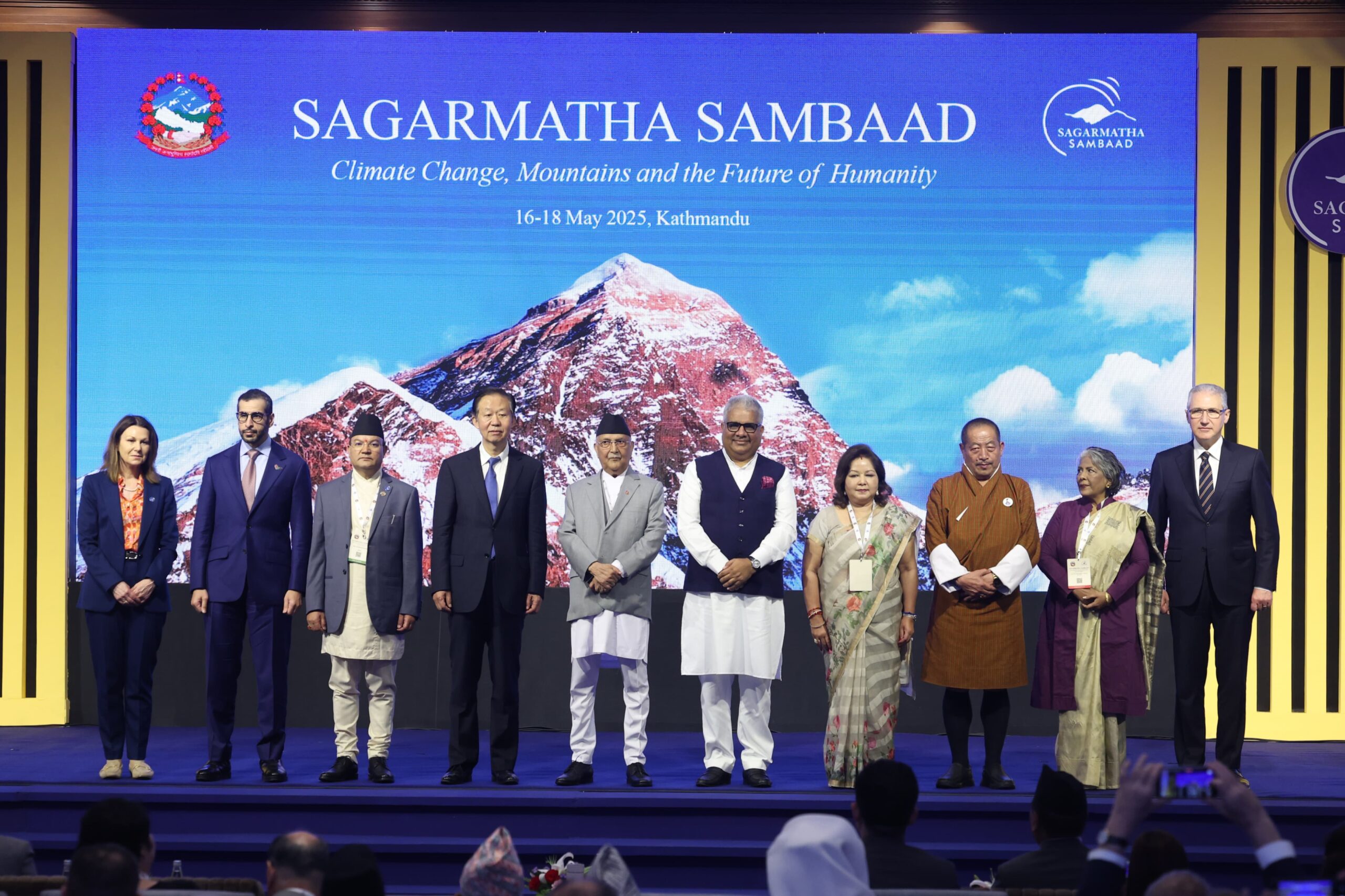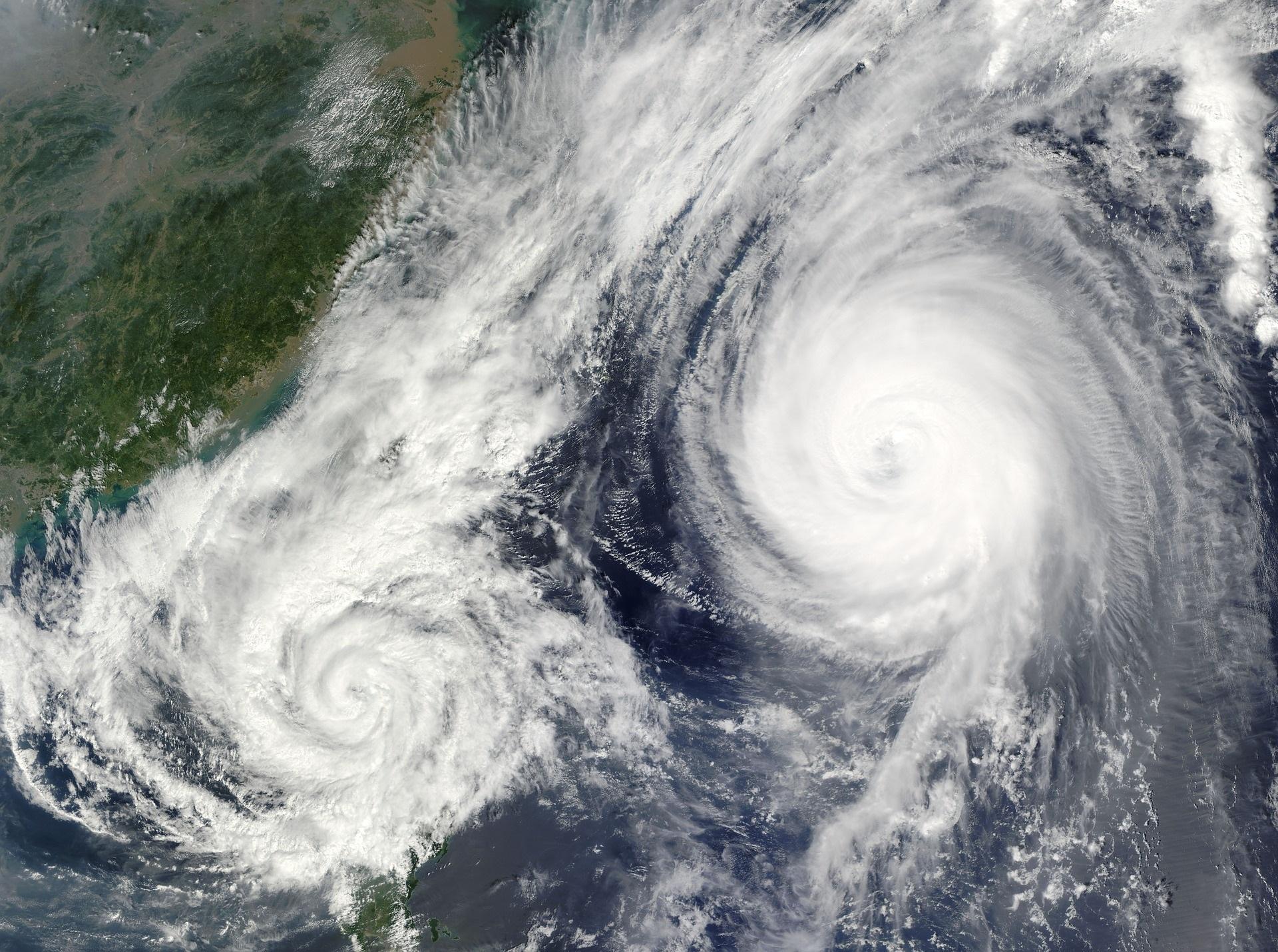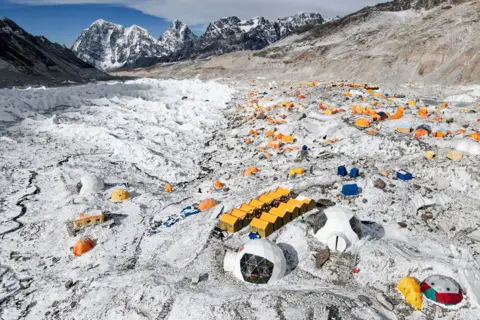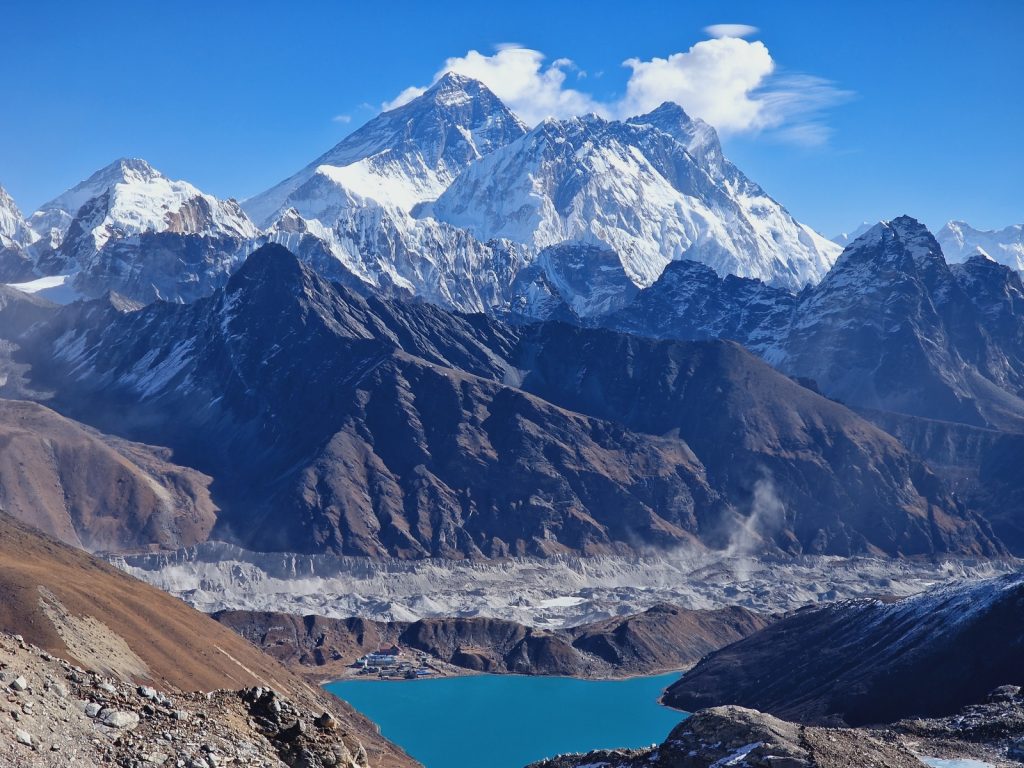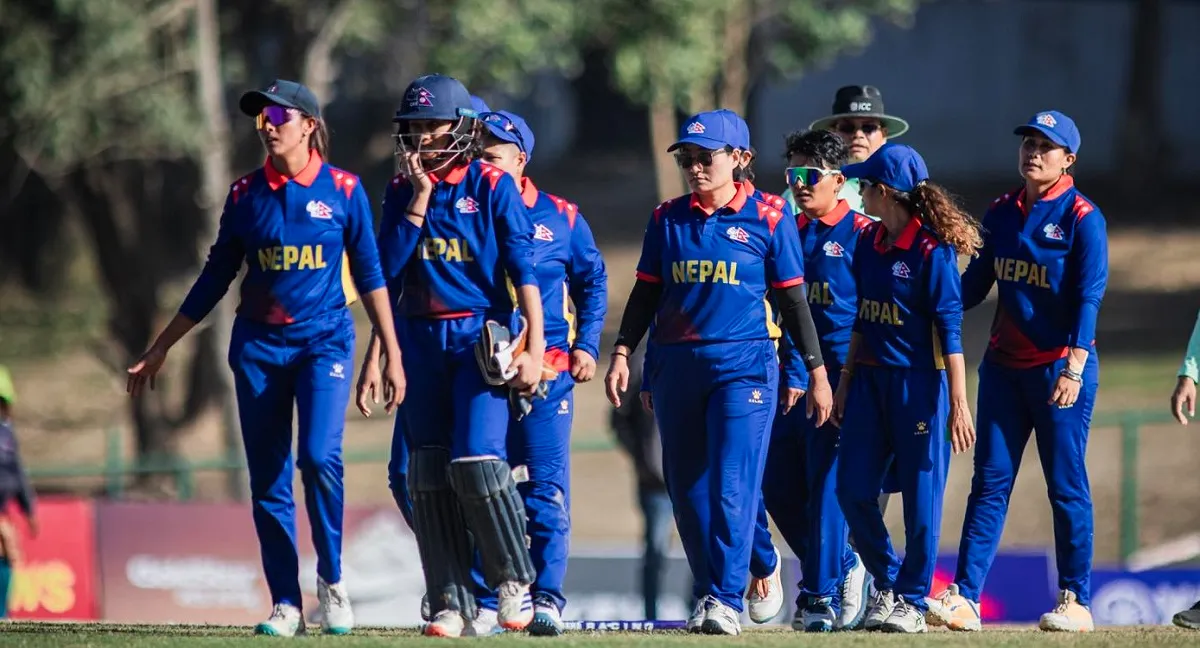Nepal Prime Minister KP Sharma Oli Calls for Global Unity and Justice-Driven Climate Action as Sagarmatha Sambaad Begins
Kathmandu, May 16 – Prime Minister KP Sharma Oli inaugurated the first edition of the Sagarmatha Sambaad in Kathmandu on Friday, urging the international community to come together in a spirit of justice and solidarity to combat the global climate crisis.
Speaking at the opening ceremony of Nepal’s newly established global dialogue platform, Prime Minister Oli emphasized the urgent need for principled and collective action to address climate change—particularly its impact on fragile mountain ecosystems.
“The Sagarmatha Sambaad is Nepal’s initiative to bring the world together in thoughtful dialogue. It is a space for principled engagement and for confronting the pressing challenges of our time,” Oli told delegates from around the world.
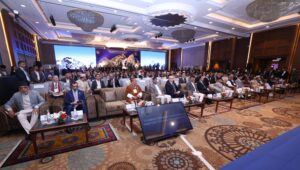
The central theme of this year’s forum—“Climate Change, Mountains, and the Future of Humanity”—highlights the profound connection between mountain environments and global climate stability. Prime Minister Oli noted that while climate change is a global issue, it is felt acutely by Himalayan nations like Nepal.
“For us, climate change is not a distant threat. It is a lived reality. Melting glaciers, erratic rainfall, floods, and landslides are affecting our people and livelihoods,” he said.
He pointed out the contradiction between Nepal’s minimal contribution to global carbon emissions and the severe climate consequences the country endures.
“We are among the lowest emitters, yet we suffer some of the highest impacts. This is a crisis of injustice that demands a fair and equitable response,” Oli said.
Underscoring the global significance of mountain regions, Oli warned that the deterioration of high-altitude environments would have far-reaching consequences.
“Mountains may seem remote, but their snow and ice sustain rivers and ecosystems that nourish billions. From the Himalayas to the Andes, they are the water towers of the planet—and they are in peril.”
He called for urgent international action to protect mountain ecosystems and promote climate resilience, not just in mountainous countries but worldwide.
“To protect the mountains is to protect the oceans. To protect the mountains is to protect humanity,” he declared.
Prime Minister Oli outlined Nepal’s national efforts to tackle climate change, including its commitment to achieve net-zero emissions by 2045—five years ahead of the global target. He also spoke of Nepal’s progress in adaptation planning, green economy initiatives, and sustainable development strategies.
“We are doing our part. But climate change cannot be solved by one country alone. This is a global emergency that requires global cooperation—anchored in fairness, responsibility, and solidarity.”
He appealed to the international community to adopt a “mountains-to-oceans” approach in climate policy, calling for targeted financing, regional collaboration, shared data, and integration of traditional knowledge with modern science.
“Let us act together. Let us rise together—for the mountains, for the oceans, for our shared future.”
The Sagarmatha Sambaad, named after Mount Everest (Sagarmatha in Nepali), is Nepal’s premier multi-stakeholder global forum for dialogue on critical national, regional, and global challenges. This year’s forum features twelve thematic sessions and brings together over 350 delegates, including 175 international participants.
Foreign Minister Arzu Rana Deuba confirmed that the Sambaad will conclude with a high-level ministerial session involving countries from the Hindu Kush Himalayan region and a roundtable with international partners.


